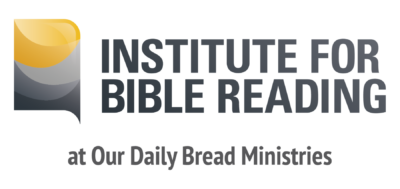What Socrates Can Teach Us About Reading the Bible
Though it’s common knowledge that Socrates never wrote a book (just as Jesus never wrote a book), the reason for his abstention is speculative. But the notion is that Socrates had a conviction: that the quest for wisdom could be short-circuited by an authoritarian voice that prematurely interrupted free-flowing conversation and debate. To gain true wisdom, things had to be discussed and sensed.
Commenting on Socrates’ pedagogy, David Malki writes:
“For only through banter, through back-and-forth discussion and rhetorical argument and the working out of problems, can true knowledge be conveyed. Reading mere words, in [Socrates] mind, is akin to looking at a lake rather than swimming in it — or worse, looking at a lake and thinking that now you know how to swim.”
If Socrates were alive today, how might he evaluate the quality of our conversations around spirituality and the Bible? Do our surface-level conversations give rise to what Scott Bolinder calls a “subtle lobotimization”?
It wasn’t writing itself that Socrates renounced— it was “experts” who were too quick to pronounce the final word and thereby prevented conversation and debate. Ministerial journals are replete with tips on better preaching, but hardly anything about creating a culture for better conversations. Where are the tutorials that teach people how to wrestle with the Scriptures in the same way that Jacob wrestled with God?
Where are the tutorials that teach people how to wrestle with the Scriptures in the same way that Jacob wrestled with God?Click To TweetThe person in the pew, and even those who have exited the pew, are ready for grown-up conversations. In their everyday lives they wrestle with “grey areas” and nuanced matters. Simple living ended with the Industrial Age. In too many instances, they are only invited to search the Scriptures for nuggets of inspiration, leaving the heavy lifting to the professionals.
Another Conversation Stopper?
I also wonder if today’s ubiquitous Bible Studies would pass muster with Socrates. They’re a fixture in modern church life, but are there forms that would serve us better?
Michigan pastor Pete Yoshonis says:
“What frustrates me is that most Bible studies are nothing more than regurgitation studies. We’re going to give you this basic thing in the text, and you’re going to recite to us what you just read as opposed to something in depth.”
“Regurgitation studies” is a severe evaluation, and certainly some studies are better than others. But if Bible Studies promote surfing or skimming the text in place of natural, undiluted Bible reading, then we’ve got a problem. We can’t afford Bible Studies where real study doesn’t actually happen!
A New Way Forward
At The Institute for Bible Reading, we envision a better future for the Bible. Five years ago, with the Socratic approach in mind, we began testing a “Book Club” model against the “Bible Study” model by asking small groups to read through the entire New Testament in eight weeks. The first four weeks looked like a traditional Bible Study. For the second four weeks, we took away the Participant Guides and gave participants a Bible made purely for reading, without chapters, verses, or other interference devices.
In place of “regurgitation questions” we asked open-ended questions like:
What was new or compelling to you?
What questions did you have?
Was there anything that bothered you?
Honestly, we anticipated some form of a “split decision”—folks who like predictability and order would opt for Bible Studies, with the free spirits choosing the Book Club.
We were wrong! Overwhelmingly, regardless of personality, people chose the Book Club. We heard comments like:
The Book Club changed the entire nature of our conversations!
The experience felt more authentic.
Where has this experience been our whole Christian lives?
Five years of observation has affirmed Socrates hypotheses. We’ve learned that:
- People are hungry for context and history.
- People have lots of unanswered questions about the Bible.
- Book Clubs are not breeding grounds for heresy.
- People are ready for real, open, honest conversations.
It’s not perfect. But given time, people immersed in the larger story start sorting things out, especially when they don’t feel threatened by giving wrong answers. Good book introductions help. Skilled facilitation is always a good thing. The Spirit seems unusually invested.
We shouldn’t read too much into Socrates’ absence at the literary table, in the same way we shouldn’t diminish the need for greater cogency in preaching and writing. But perhaps our most compelling need is for a new reformation of undiluted Bible reading and community discussion—a groundswell of everyday people experiencing the Bible, not in some over-simplified, pre-digested, hyper-individualized way, but in a way that leads to better understanding, better believing, and better living.

